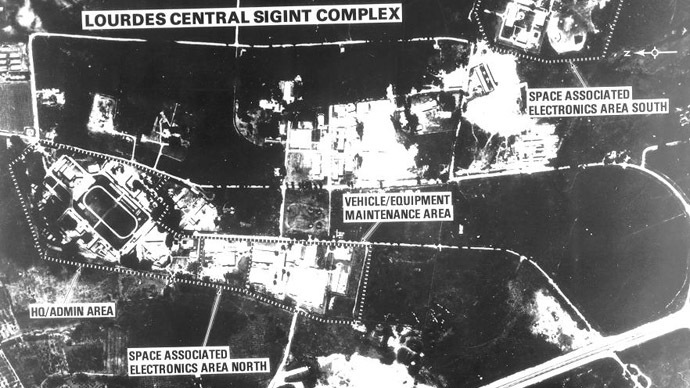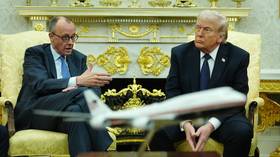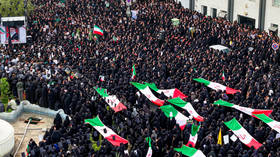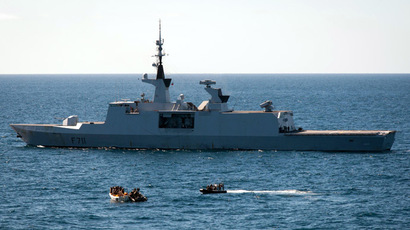Putin denies reopening of US-targeting listening post in Cuba

Russian President Vladimir Putin denied media reports that Russia was planning to reopen the Soviet-age SIGINT facility in Lourdes, Cuba, once was largest foreign listening post of its kind, but shut down under US pressure.
Russia can “meet its defense needs without this component” and has no plans to renew its operation, the president assured journalists on Wednesday.
Earlier Kommersant business daily reported that Moscow and Havana had reached a deal on reopening the spy facility during Putin’s visit to Cuba last week. When operational, the facility was manned by thousands of military and intelligence personnel, whose task was to intercept signals coming from and to the US territory and to provide communication for Russian vessels in the western hemisphere.
“I can say one thing: at last!” one of the sources commented on the news to the paper, adding that the significance of the move is hard to overestimate.
The facility in Lourdes, a suburb of Havana located just 250km from continental USA, was opened in 1967. At the peak of the cold war it was the largest signal intelligence center Moscow operated in a foreign nation, with 3,000 personnel manning it.
From the base Russia could intercept communications in most part of the US including the classified exchanges between space facilities in Florida and American spacecraft. Raoul Castro, then-Defense Minister of Cuba, bragged in 1993 that Russia received 75 percent of signal intelligence on America through Lourdes, with was probably an overstatement, but not by a large amount.
Following the collapse of the Soviet Union the base was downscaled, but continued operation. After Russia was hit the 1998 economic crisis, it found it difficult to maintain many of its old assets, including the Lourdes facility. In Soviet times Cuba hosted it rent-free, but starting 1992 Moscow had to pay Havana hundreds of millions dollars each year in addition to operational costs to keep the facility open.

An additional blow came in July 2000, when the US House passed the Russian-American Trust and Cooperation Act, a bill that would ban Washington from rescheduling or forgiving any Russian debt to the US, unless the facility in Lourdes is shut down.
Moscow did so in 2001 and also closed its military base in Vietnam’s Cam Ranh, with both moves reported as major steps to address Americans’ concerns. But, in the words of a military source cited by Kommersant, the US “did not appreciate our gesture of goodwill.”
No detail of schedule for the reopening the facility, which currently hosts a branch of Cuba’s University of Information Science, was immediately available. One of the principle news during Putin’s visit to Havana was Moscow’s writing off of the majority of the old Cuban debt to Russia. The facility is expected to require fewer personnel than it used to, because modern surveillance equipment can do many functions now automatically.
With the Lourdes facility operational again, Russia would have a much better signal intelligence capability in the western hemisphere.
“Returning to Lourdes now is more than justified," military expert Viktor Murakhovsky, a retired colonel, told Kommersant. “The capability of the Russian military signal intelligence satellite constellation has significantly downgraded. With an outpost this close to the US will allow the military to do their job with little consideration for the space-based SIGINT echelon.”














